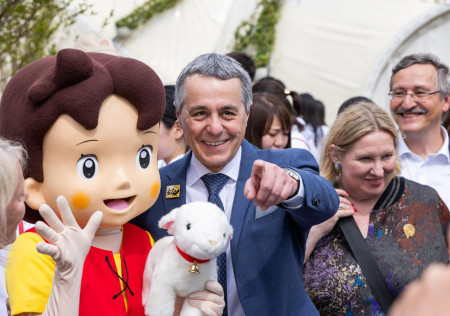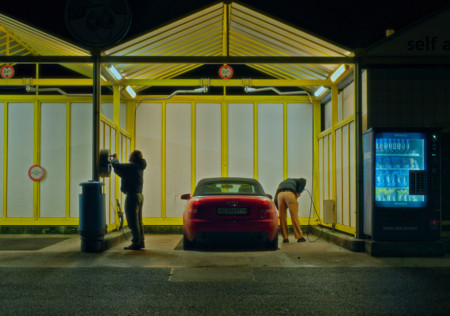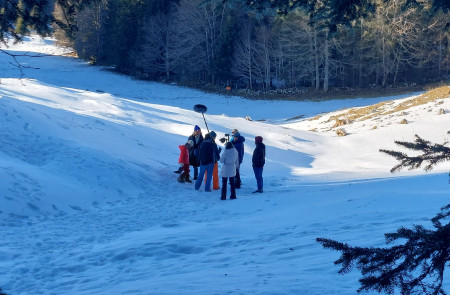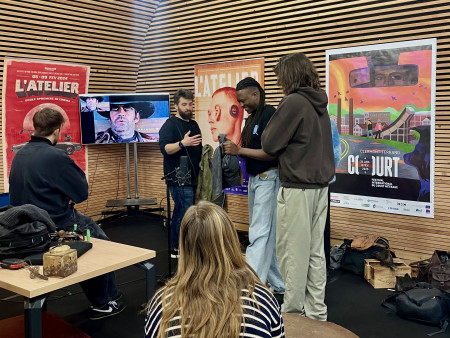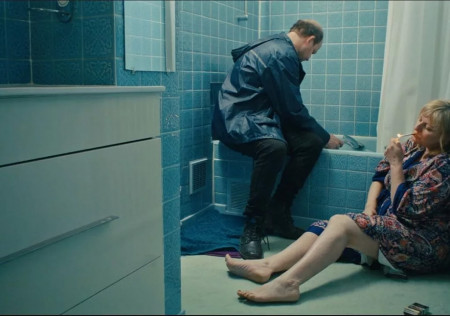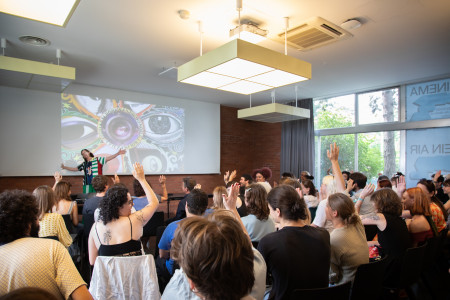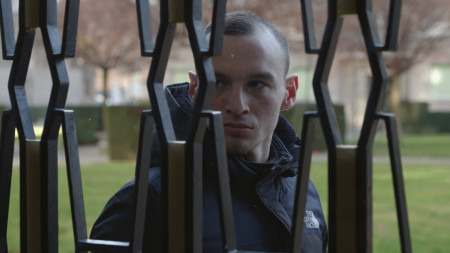- The school
- Studies and Research
- BACHELOR
- MASTER
- DOCTORATE
- RESEARCH
- TRANSDISCIPLINARITY
- POOLS
- CONTINUING EDUCATION
- Continuing education 2025-2026
- Artificial Intelligence, initiation
- Artificial Intelligence, Advanced
- Artificial intelligence open-source, ComfyUI
- Creative coding
- Engage with drawing
- Frame-by-frame animation
- 3D exhibition modeling in SketchUp
- 3D modeling, Blender
- Point cloud scanning
- Documentary podcast
- Serious games
- For students
- Studying at the HEAD
- InfoLab
- Living in Geneva
- Tuition fees and sholarship
- Library
- Regulations and instructions
- Projects
- Events
- Press
- Partnerships and prizes
Bachelor in Cinema
2026 ADMISSIONS
Attend the Bachelor's program information sessions:
- Tuesday, 3 February 2026 - from 6:30pm to 8pm - Online
- Watch the video presentation of the program
Over the three years of the Bachelor of Arts in Cinema, students explore the diversity of filmmaking, including scriptwriting, directing, editing, cinematography, sound, post-production, and production, across both documentary and fiction.
The program promotes formal risk-taking and encourages the exploration of areas of hybridisation between genres, while emphasising films in tune with today’s world. Students learn to master the techniques of filming, sound recording, editing and post-production. In addition, they cultivate their vision, critical thinking and ability to express themselves through theory courses.
The first year covers sound and image techniques, archiving, and lighting (outdoor and studio). Workshop-based teaching introduces students to filmmaking with input from internationally renowned cinema professionnals.
The second year allows students to deepen their technical knowledge and complete two films: one fiction film shot locally, and another during a Grand Atelier, which offers the opportunity to discover new territory, accompanied by a renowned local filmmaker.
From the third year onwards, students choose between different options aimed at giving the curriculum a specific focus and offering the opportunity to experiment with a direction that could be explored in greater depth in a Master's degree. The final year is devoted to the completion of the diploma project, which includes a film and a theoretical essay. Collaboration between students from the three options continues through the formation of filming, editing, and post-production teams. At the same time, students prepare a portfolio of their work in order to launch themselves into the professional world.
The third year is also devoted to the completion of the diploma project, which includes a film and a theoretical essay. Collaboration between students from the different options continues through the formation of filming, editing, and post-production teams for the diploma film projects. At the same time, students prepare a portfolio of their work in order to launch themselves into the professional world.
Film Directing
Students who choose the Film Directing major deepen their screenwriting and directing skills and concentrate on their graduation film. Most of the teaching that takes place in the form of personalised tutoring and thematic seminars revolves around their project. Their diploma project may be developed as either a fiction or a documentary.
The tailor made program also provides courses in production, authorship rights, distribution, selection processes, festivals, and co-creation techniques.
Editing
Students who opt for the Editing major benefit from advanced editing training (Avid, Davinci, etc). They deepen their knowledge by exploring different narratives and practicing a wider variety of editing techniques. Moreover, students have the opportunity to familiarise themselves with special effects, color grading and graphic design software. Moreover, in order to develop a practical knowledge of editing, an internship in a professional environment or an individual personal project are an integral part of the course. The program also includes courses in production, authorship rights, festivals and co-creation techniques.
During their graduation project, each student works in a team with a student from the Film Directing major to demonstrate their ability to complete the work through editing.
Sound
Students who opt for the Sound major benefit from advanced sound recording training (microphones, recorders, booms, critical listening), while working on conceptual workshops (layered soundscapes, interactions between direct sound/ambience/music) and developing their knowledge of professional software (Pro Tools).
Moreover, in order to develop a practical knowledge of sound, an internship in a professional environment or a personal project are an integral part of the course. The program also includes courses in production, authorship rights, and co-creation techniques.
During the graduation project, students in the Sound major work on their colleagues’ films in the Directing major in collaboration with those in the Image and Editing major, in order to define the method and sound strategy specific to the film, carry out the sound recording during the shooting, collaborate on the sound editing and carry out the mix.
Image
The image option aims to deepen students' skills in shooting and aesthetic image design. Students participate in artistic and technical workshops (filming with natural light, at night, in a studio with sets and green screens, color grading, familiarization with cameras of different sizes and various team configurations).
These workshops are led by internationally renowned cinematographers.
In addition to theoretical and technical courses, students complete an internship on a feature film shoot or develop a personal artistic project. The program also includes courses in production, authorship rights, selection proecesses in festivals, and co-creation techniques.
The Bachelor diploma project will involve the creation of a diploma film from an image perspective (aesthetic considerations, camera choice, shooting, editing) as well as image color grading.
See all Cinema projects
Access to the website of the Department Cinéma / Cinéma du réel
Access to the Department's vimeo
Head of Department
Anita Hugi
Scientific Deputy
Irene Munoz
Assistants
Lilou Hermann
Elena Iruarrizaga Ballesteros
Teaching Staff
Delphine Jeanneret
Bertrand Bacqué
Basil Da Cunha
Maryam Goormaghtigh
Danielle Lessovitz
Vuk Vukmanović
Olivier Zuchuat
Post-production
Lorin Wüscher
Magasin audiovisuel
Cathy Lopez
Invited speakers
Sandro Aguilar, Khalik Allah, Kamal Aljafari, Fabrice Aragno, Claire Atherton, Marine Atlan, Tristan Aymon, Kenza Barrah, Claude Barras, Antoine Barraud, Céline Bozon, Iris Brey, Anne Brouillet, Tizian Büchi, Sarah Blum, Philippe Ciompi, Faye Corthésy, Ael Dallier Vega, Robin Deriaud, Daniel Deshays, Lav Diaz, Pauline Doméjan, Claire Doyon, Farah Clémentine Dramani-Issifou, Hassen Ferhani, Andreas Fontana, Sylvie Gadmer, Jan Gassmann, Lilith Grasmug, Elie Grappe, Blaise Harrison, Loïc Hobi, Christine Hoffet, Tatiana Huezo, Gina Keller, Véronique Jaggi, Kirsten Johnson, Carlos Ibañez Diaz, Carmen Jaquier, Kirsten Johnson, Denis Jutzeler, Oliver Laxe, Chloé Larouchi, Julien Lacheray, Danielle Leissovitz, Elina Löwensohn, Marie Losier, Mélia Roger, Elena Lopez Rieira, Quentin Mistral, Eleonore Mallo, Callisto McNulty, Eugenia Mumenthaler, Nora Nahid Khan, Elene Naveriani, Catherine Paillé, João Pedro Rodrigues, Caroline Poggi, Jonathan Ricquebourg, Nicolas Rabaeus, Thomas Reichlin, Antoine Russbach, Florian Sanson, Cyril Schäublin, Saeed Taji Farouky, Elena Tatti, Jonathan Vinel, Seumboy Vrainom, François Wolf, Rui Xavier, Flavia Zanon.
Degree awarded:
Bachelor of Arts HES-SO in Cinema

